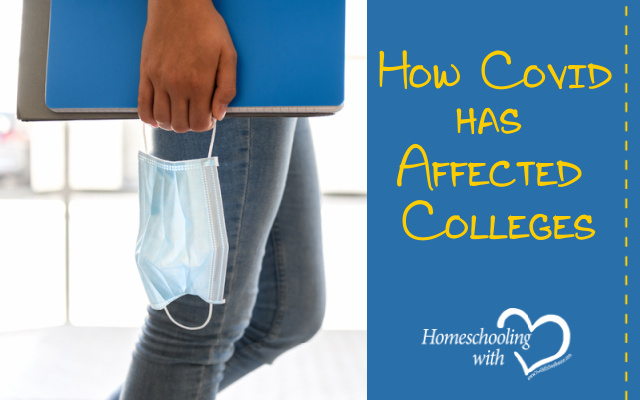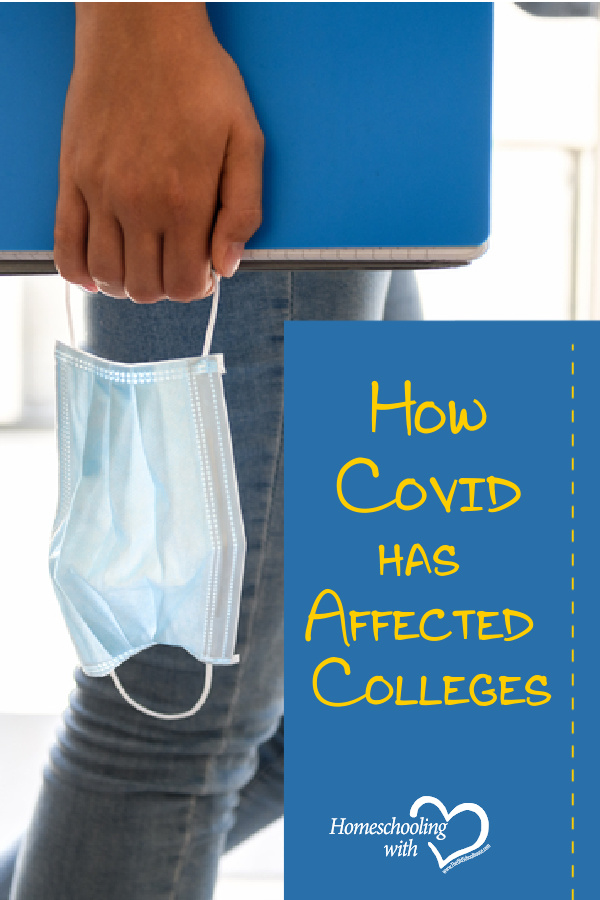How COVID Has Affected Colleges


COVID has wreaked havoc among the lives of many, including college students. At Bryan College, as well as many other colleges, COVID restrictions began the week of spring break. As a precaution, classes went online so students would not have to return to campus immediately. When the number of COVID cases increased, many colleges, including Bryan, kept classes online for the duration of the spring semester. This decision was a bigger disappointment for seniors than for others because graduations were cancelled or moved to a virtual format.
The spring ACT and SAT tests were cancelled. There were a few testing opportunities towards the end of the summer, but many continued to be cancelled or rescheduled. The test cancellations were particularly disappointing to homeschooled students who need test scores to earn state grants that require test scores. In Tennessee, the state has allowed these students to take the tests this fall, and if they meet the state requirements, they will be awarded the grant retroactively. The CLT exam, a new third option, was not affected by COVID because they were prepared to offer the exam virtually, and because of that, their business boomed as they became the only college exam ready and able to offer the exam online. Before COVID, around 200 Christian colleges accepted the CLT scores. As a result of the ACT and SAT tests being cancelled, many more colleges began accepting the CLT since it was the only exam being offered virtually.
In light of the exam cancellations, many colleges have chosen to be test optional for now. Depending on how well everything goes during the upcoming year, some colleges may choose to remain test optional. Colleges that are test optional no longer require a college exam score for admission and/or for scholarships. Test optional does not mean test blind. A student is free to submit test scores earned but not required to do so. Most of the colleges that are test optional are looking at a student’s GPA to determine acceptance and academic scholarship awards. This may be beneficial to students who have great GPAs but who are poor test takers.
This fall, colleges are adapting to COVID in different ways. Some colleges have gone to all online classes. Others have given the students a choice of online or on campus. And some colleges continue to offer on campus classes only. A few colleges that began the semester on campus have already returned to online classes after experiencing a COVID outbreak. Bryan College has both online and on-campus students. Instead of chapel taking place in the auditorium three times a week, there is now one chapel, in the evening, outside, with room for students to be spread out.
The colleges that are allowing students on campus have made changes needed in order to abide by COVID restrictions set in place by the governor of their state or, in some cases, the mayor of the city. Most colleges are requiring students to wear masks except when outdoors and six feet apart. Changes have been made in the dorms (some allowing only one person per room), with the food service (no more self-service and some offering carry-out only), and with class sizes (keeping students 6 feet apart). Many colleges are fining and/or suspending students who do not comply with protocols. As challenging as it is for some students to acclimate to the changes, being on campus is so important that they are making necessary adjustments. For other students, staying at home and taking classes online is preferred to risks of exposure.
Another change made by many colleges was to move up the fall semester start date early enough so that the fall semester would end right before Thanksgiving. This allows students a long winter break without the risk of returning after Thanksgiving with COVID.
Although many colleges have a smaller freshmen class than usual in attendance this fall, across the country there are more than a few, recent high school graduates who have decided to take a gap year, wanting to wait until all the restrictions are lifted in order to enjoy the full college experience. Rumor has it that this may cause unusually large freshmen classes next year which may, in turn, affect scholarships. At Bryan College, we were pleasantly surprised that we not only met our pre-COVID goals for new admits, we surpassed our goals.
Flexibility is the key word this year. How long will COVID precautions be in place? What changes will carry over to the next semester? The optimists among us are hoping that college life will return to a pre-COVID normal in January. Only time will tell.
Pat Wesolowski is an author, speaker, and homeschooling mother of 9 who is now the Homeschool Specialist at Bryan College in Dayton, TN. After homeschooling her 9 children for the past 32 years, she is finally finished! Pat has a heart for helping parents find joy in their homeschooling experience and, for that reason, loves teaching workshops in order to encourage and equip parents for a fun and successful homeschool experience. Pat is the host of a podcast entitled “Homeschooling Co-op Style,” writes a blog, and has authored numerous unit studies for homeschooled students. Pat has also written a free eResource to help parents plan for a successful high school experience. It is available to download at this link: www.bryan.edu/ebook.

































